Registration to the Engineering Council can have a big impact on an engineering career. SOE members tell us about their experiences.

Jon Smith EngTech MSOE MIRTE
I have found that holding the EngTech professional registration has been important because it has given me the opportunity to work to an industry standard for engineering skills and principles. It shows that I have demonstrated a commitment to continually develop professionally and to contribute to changes or improvements in my field of work. By having EngTech, I have provided evidence that my interpersonal skills meet the required standards, that I am able to work with minimal supervision and that I advocate and promote safe methods of working. I get to hear about new technologies and engineering principles before my peers in the industry and this gives me a huge advantage in planning for new technologies or for problems we may face in the future. If we were to lose our EngTech status this would have negative and profound consequences to the industry.
Siu Pui Fung CEng MSOE MIPlantE
SOE staff members in the UK and Hong Kong were very helpful and responsive. I will recommend SOE to my friends and colleagues and advise them to pursue membership and registration with SOE. It is my honour to earn this recognition from SOE.
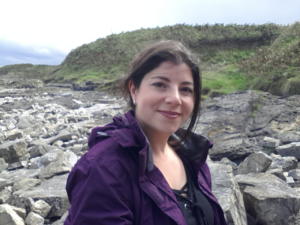
Ruth Kyriacos EngTech, AMSOE, AMIRTE (pictured, left)
Being a member of SOE has given me recognition of my qualification within my industry through my EngTech registration. This has made me feel valued and given me the opportunity to develop in my career.
Ranj Randhawa EngTech MSOE MIRTE (pictured, below right)
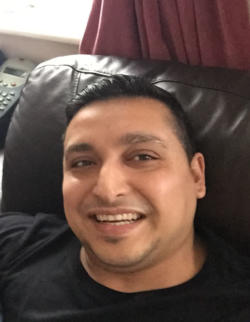
I value my EngTech status as it’s the first stage into the Engineering Council, and it shows your levels and ability as a true professional. I would be deeply upset if this was to no longer exist, as it was a long road getting here. It’s recognised around the world and would be a massive mistake to down-play it or remove it! In my opinion, as I’m a relatively new member, I would see this as a blow.
Tony Lok CEng MSOE MIPlantE
As a registered Chartered Engineer, it means I have the sufficient knowledge, experience and skills to be a qualified professional engineer in my industry. I will continue to apply it to my engineering work. I outlined my academic qualifications and work experience, and I chose some of my projects to write the professional review report - those which best demonstrate my competences. For the CEng Professional Review Interview (PRI), I prepared all supporting documents and presentation files to present my competences in an organised manner.
Parm Dhami EngTech AMSOE AMIRTE (pictured, below left)
It truly means so much to me to gain EngTech status. Although I did not have the necessaryqualifications, I was given the offer and support of a workplace assessment. The assessment was a true test of my abilities and I am so glad to have passed. With membership, I have gained the necessary qualification I need to further my career and I am sure I will use it in the future.
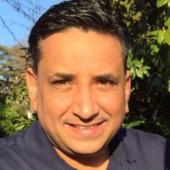
Simon Parry EngTech MSOE MBES (pictured, right)

I am very proud to be a member of SOE and hold the professional qualification of EngTech. It gives me professionalism and confidence in my day-to-day work. My CPD allows me to keep up to date with technical information and keep good stead amongst my colleagues in the workplace and in my engineering industry.
Mark Hulican EngTech MSOE MBES (pictured, below left)
The EngTech registration is essential to me as an engineer surveyor. It lets the client know that I am accredited to a certain engineering standard to survey their equipment. It is also a milestone and enables engineers to work towards IEng with support of SOE.
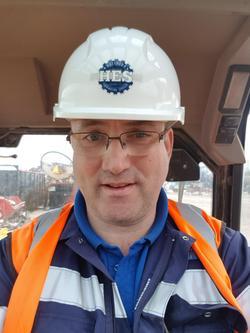
Corneilius Mitchell EngTech MSOE MIRTE LCGI
My registration with the Engineering Council as an Engineering Technician (EngTech) was achieved around 21 years ago. It was at the time I completed the final part of my professional education and when I joined the Vehicle Inspectorate (now DVSA) as a vehicle examiner. I felt it gave me a professional standing within the road transport engineering sector, and a sense of pride that my hard work, that had begun when I left school in 1981, was recognised by the regulatory body for engineering professions. I have seen many engineers achieve similar recognition and achievement, and I feel that promotion of the EngTech grade should be a big part of continuing professional development in all sectors of engineering.
Yiu Tin Lun Alan CEng MSOE MBES (pictured, below right)
I had been preparing for the CEng qualification since my bachelor’s degree in Newcastle. I consider professional qualification as a big achievement in my life. After getting CEng, I don’t feel I am much different from other engineers, but I think I have a duty to make sure everything I do or everything I check is technically correct. I will continue to improve myself through professional development. The registration process is direct and very convenient. The written report gave me the chance to review what I have done over the past ten years and prove my competence as a professional engineer. The interview location is in Hong Kong city centre and the date and time can be arranged at the weekend. Going forward, I will fully support SOE and I hope to become a Fellow. I will recommend SOE to all my friends and colleagues.
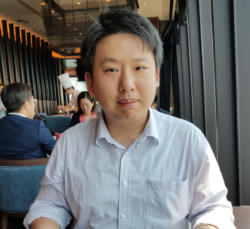

Stephen Walker EngTech MSOE MBES (pictured, left)
It is very important in my current role to represent myself with both formal qualifications and recognised professional status. I highlight to clients and advise on situations which could potentially become a health and safety risk. Therefore, taking our advice is important and backed up by our status; it proves we are not just amateurs in our field.
For more information about professional registration to the Engineering Council, go to: https://soe.org.uk/professional-development/professional-registration.html or email: [email protected]

